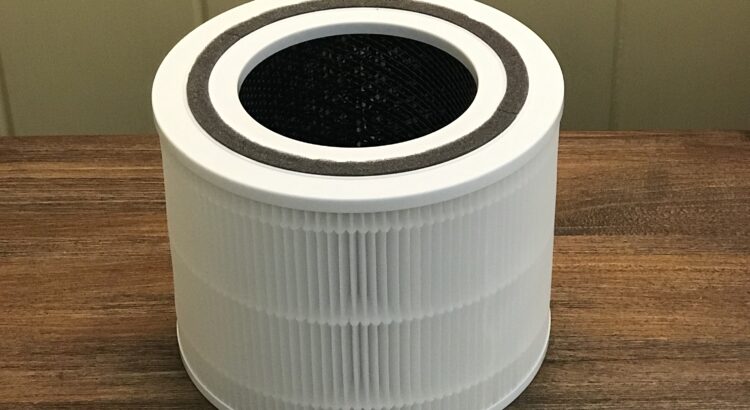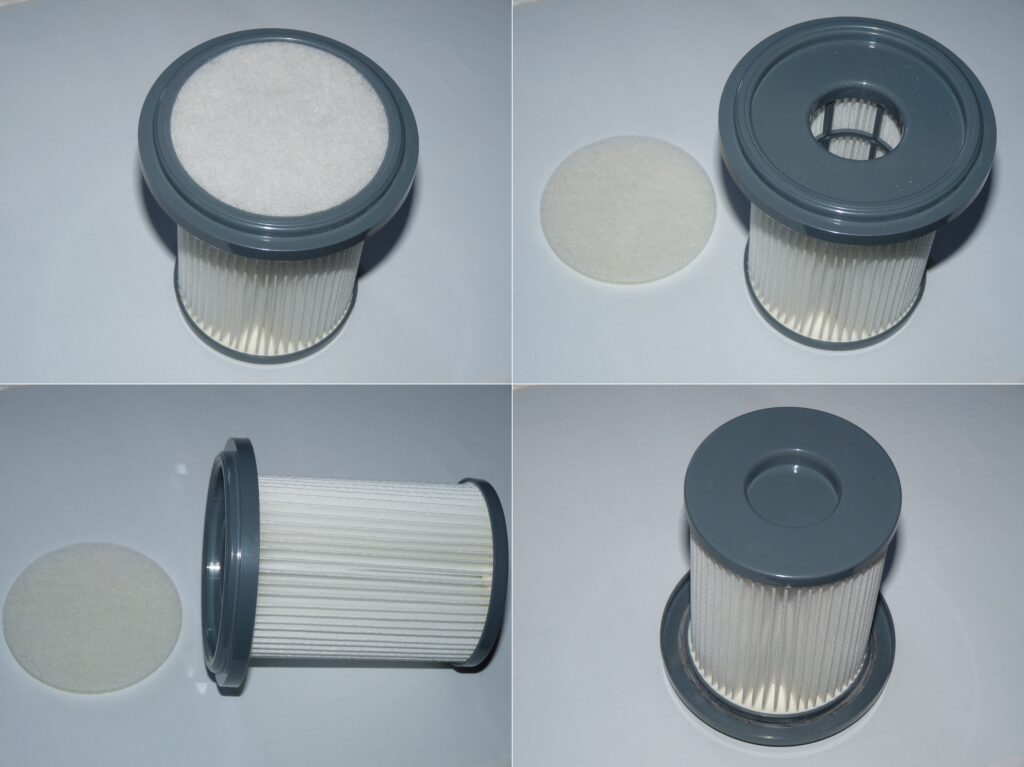
Have you ever wondered why some vacuum cleaners seem to be more effective at removing dust and allergens from your home? It’s all thanks to the magic of HEPA filters! These tiny but mighty filters play a crucial role in keeping your home clean and your air quality pristine.
In this article, we’ll explore the importance of HEPA filters in vacuum cleaners and why you should consider them a non-negotiable feature in your next cleaning machine. So sit back, relax, and prepare to be amazed by the power of HEPA!
Table of Contents
- What are HEPA Filters
- Why HEPA filters are Important in Vacuums
- Benefits of HEPA Vacuum Filters
- Beware of “HEPA-like” Filters
- Not all HEPA Filters Equal
- Where HEPA Filters are Found
- Maintaining HEPA Filters
- When to Change Filter
- HEPA Vacuum Bags
- HEPA Benefits For Pet Owners
- Bagless HEPA Effectiveness
- Stick Vacuums With HEPA
- Central vacuum HEPA pros/cons
- HEPA in Air Purifiers
- Other uses of HEPA filters
- Questions & Answers For Importance of HEPA Filters in Vacuum Cleaners
- The Conclusion
What are HEPA Filters
HEPA filters, or High Efficiency Particulate Air filters, are a type of air filter that can capture and trap very small particles from the air.
To officially qualify as HEPA, a filter has to remove at least 99.97% of particles that are 0.3 microns in size, making them incredibly effective at improving indoor air quality. For comparison, a human hair is about 50-70 microns wide! So HEPA filters capture incredibly tiny stuff.
HEPA filters are commonly used in air purifiers, vacuum cleaners, and HVAC systems to help reduce allergens, dust, and other airborne pollutants.
Why HEPA filters are Important in Vacuums
Whether you suffer from allergies or just want to ensure that your indoor air quality is as clean as possible, incorporating HEPA filters into your vacuum cleaner is essential for maintaining a healthy home environment. HEPA filters, or high-efficiency particulate air filters, are designed to capture even the tiniest particles, making them an indispensable tool in the fight against dust, allergens, and other airborne pollutants.
One of the main reasons why HEPA filters are important in vacuums is their ability to trap microscopic particles that ordinary vacuum filters cannot. This means that HEPA filters can effectively capture common household allergens such as pollen, pet dander, and dust mites, preventing them from being re-released into the air as you clean.
Additionally, HEPA filters can also trap harmful bacteria and viruses, making them a crucial component in maintaining a hygienic and healthy living space. With a HEPA filter-equipped vacuum, you can breathe easy knowing that your home is being thoroughly cleaned and that you are minimizing your exposure to airborne contaminants.
Benefits of HEPA vacuum filters
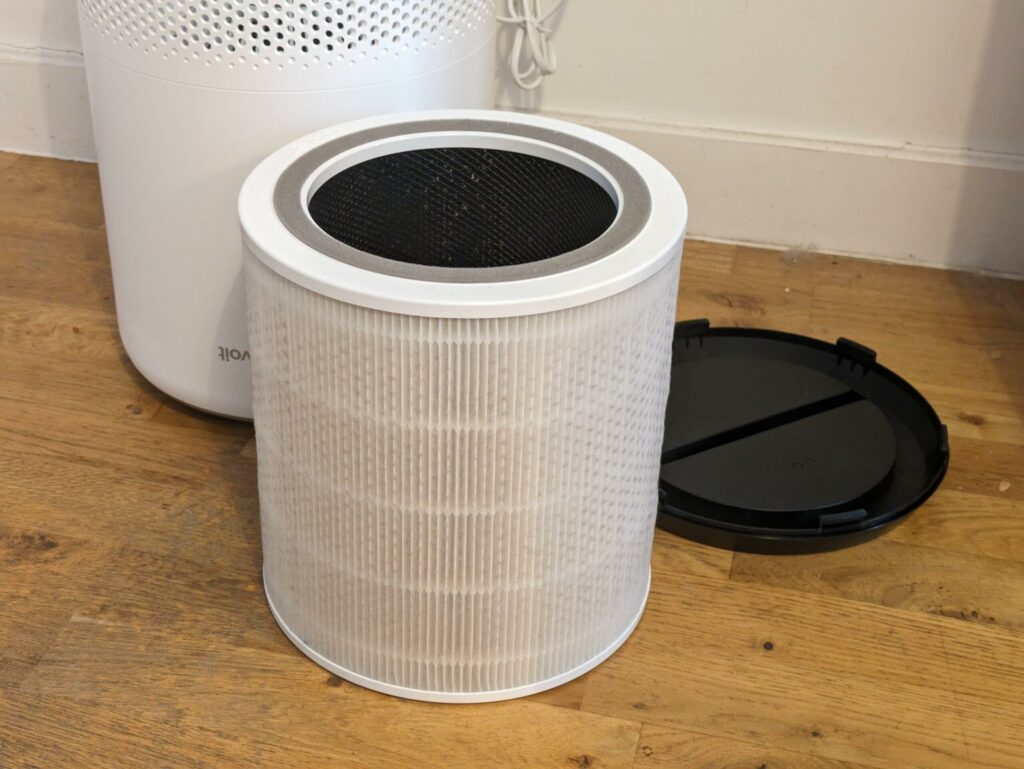
There are numerous benefits to using HEPA vacuum filters in your home. These filters are designed to trap small particles that other vacuum filters can’t, making them a powerful tool for improving air quality and reducing allergens in your living space.
Additionally, HEPA filters can help to prolong the life of your vacuum cleaner by preventing the buildup of dust and debris in the motor and other internal components. This means fewer repairs and a longer-lasting appliance.
With their superior filtration capabilities, HEPA filters also contribute to a healthier and cleaner environment for you and your family, which can be especially beneficial for those with allergies or respiratory issues.
Overall, investing in a vacuum cleaner with HEPA filters is a smart choice for anyone looking to improve indoor air quality and maintain a clean and healthy home.
| Improved air quality | Traps particles as small as 0.3 microns |
| Extended vacuum cleaner lifespan | Reduces dust and debris buildup |
| Healthier environment | Reduces allergens and respiratory irritants |
Beware of “HEPA-like” Filters
When it comes to air purification, the term “HEPA-like” filters is often thrown around, but what does it really mean? Many consumers may fall into the trap of believing that “HEPA-like” filters are as effective as true HEPA filters, but this is not always the case. It’s important to be aware of the differences between the two to make an informed decision when purchasing an air purifier.
One of the key differences between true HEPA filters and “HEPA-like” filters is their level of efficiency. True HEPA filters are capable of capturing 99.97% of particles as small as 0.3 microns, including dust, pollen, pet dander, and mold spores. On the other hand, “HEPA-like” filters may only capture a smaller percentage of particles and may not be as effective in removing allergens and pollutants from the air.
It’s important to carefully read the product specifications and look for the true HEPA label when shopping for an air purifier to ensure the highest level of filtration.
Not all HEPA Filters Equal
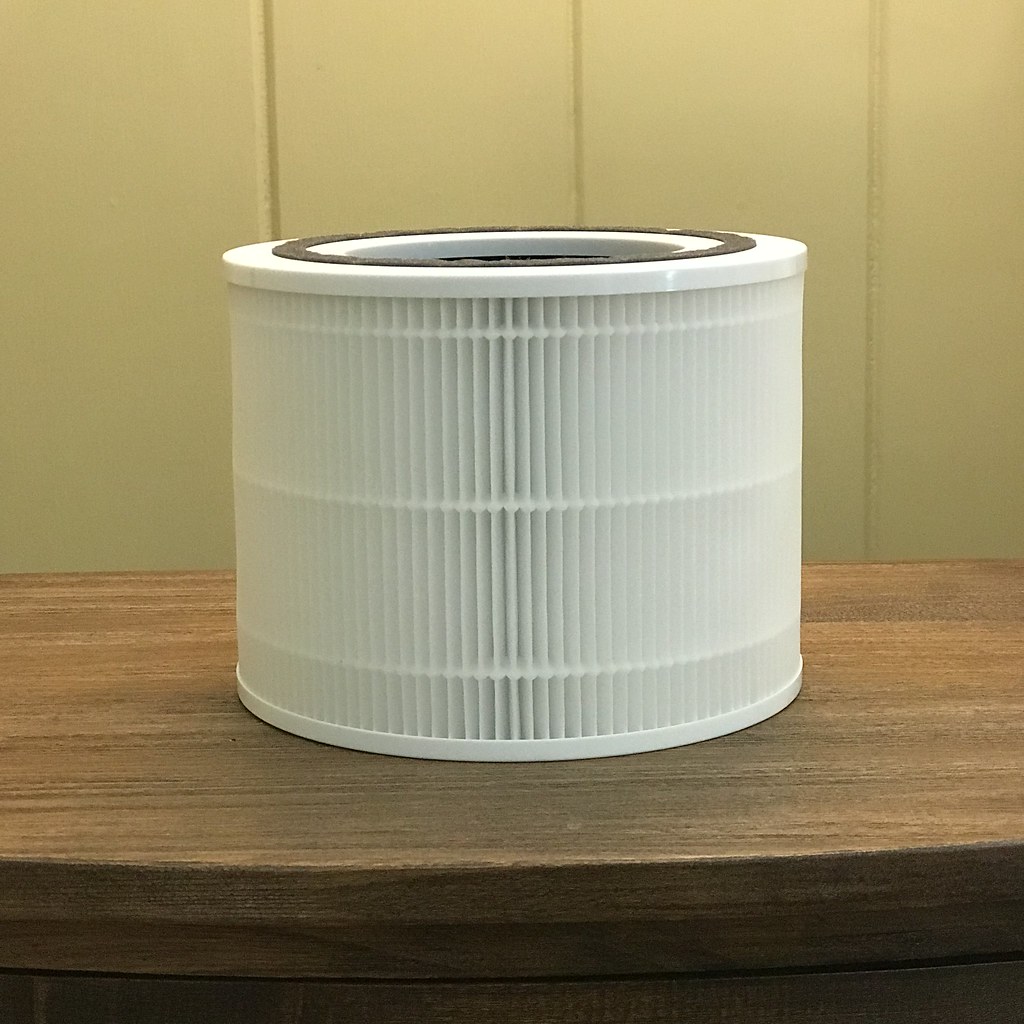
When it comes to HEPA filters, not all are created equal. It’s important to understand the differences in order to make an informed decision for your air quality needs.
Here are some key factors to consider when comparing HEPA filters:
- Filtration Efficiency: Not all HEPA filters capture the same percentage of particles. The most effective HEPA vacuums use a multi-stage filtration system with a pre-filter to catch larger particles first. This prevents the HEPA filter from clogging up too quickly. Look for filters that capture at least 99.97% of particles as small as 0.3 microns.
- Seal and fit: An improperly fitted HEPA filter allows particles to sneak around it, compromising performance. High-end vacuums are engineered for a tight seal.
- Lifespan: Some HEPA filters require more frequent replacement than others. Consider the lifespan of the filter when making your choice.
- Construction: The construction of the filter can affect its performance. Look for filters with pleated designs for maximum surface area and effectiveness.
- Filter media: HEPA filters come in different materials like fiberglass, microglass, and felt. The quality of media affects durability and filtration efficiency.
- Surface area: Larger surface area = increased trapping capacity. Premium vacuums maximize filter square footage.
It’s also important to consider the brand when choosing a HEPA filter. Some companies have a long-standing reputation for producing high-quality filters, such as Honeywell and Rabbit Air. By doing your research and comparing options, you can ensure that you’re getting the best HEPA filter for your specific needs.
Where HEPA Filters are Found
HEPA filters are commonly found in a variety of devices, serving as an essential component in promoting clean and healthy air quality. Whether at home, in the office, or even on-the-go, these devices are designed to effectively filter out harmful airborne particles and allergens.
Here are some popular devices where HEPA filters can be found:
Vacuum Cleaners: HEPA filters in vacuum cleaners are instrumental in capturing tiny dust and dirt particles, effectively preventing them from being released back into the air. This makes HEPA-equipped vacuum cleaners an ideal choice for those with allergies or asthma, as they help minimize exposure to indoor pollutants. Some popular vacuum cleaner brands known for their HEPA filtration systems include Dyson, Shark, and Miele. Check out the latest models from these reputable companies for a thorough cleaning experience that prioritizes air quality.
- Canister vacuums – Canisters offer increased filtration since the motor is separate. This allows for larger filters.
- Uprights for allergies/asthma – Uprights designed for allergy-sufferers typically include HEPA filters.
- Cordless stick vacuums – Many stick vacs are now incorporating HEPA filters as the technology improves.
- Central vacuum systems – Built-in central vacuum systems often use HEPA filters to filter dust as it’s sucked through the pipes.
Air Purifiers: One of the most well-known devices to feature HEPA filters, air purifiers are designed to remove particles such as dust, pollen, and pet dander from the air, improving overall air quality. Many models also include additional filters to target specific pollutants, making them a versatile option for maintaining a healthier indoor environment.
HVAC systems: Some furnaces and air conditioning systems include HEPA filters as part of their ventilation systems.
Maintaining HEPA filters
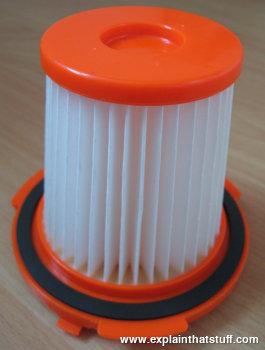
Maintaining HEPA filters is essential to ensure that they continue to function effectively in removing airborne particles from your indoor environment. Proper maintenance not only extends the lifespan of your HEPA filters but also ensures that they are able to provide you with clean and healthy air.
Here are some important tips for maintaining HEPA filters:
Regular cleaning: Regularly cleaning your HEPA filters is crucial to prevent the buildup of dirt, dust, and other particles that can clog the filter and reduce its efficiency. Use a vacuum cleaner with a soft brush attachment to gently remove the accumulated debris from the surface of the filter.
Replacement schedule: Even with regular cleaning, HEPA filters will eventually need to be replaced. It’s important to follow the manufacturer’s recommendations for filter replacement to ensure that your air purifier continues to work effectively. Most HEPA filters need to be replaced every 6 to 12 months, but this can vary based on usage and environmental factors, so be sure to check the specific guidelines for your filter.
By following these simple maintenance tips, you can ensure that your HEPA filters continue to provide you with clean, healthy air for years to come.
Recommended products for maintaining HEPA filters:
- HEPA filter cleaning kit: A specially designed cleaning kit that includes a gentle brush and cleaning solution to effectively remove dirt and debris from your HEPA filter.
- Replacement HEPA filters: Make sure to have replacement filters on hand so that you can easily swap them out when needed, ensuring that your air purifier continues to provide you with clean air.
Remember to always refer to the specific maintenance guidelines provided by the manufacturer of your HEPA filter for the best results.
When to Change Filter
It’s important to know when to change your filter to ensure your air purifier is working effectively. While it may vary depending on the model and brand, there are general guidelines to follow.
Here’s a quick guide to help you determine when it’s time to change your HEPA filters:
- Check the manufacturer’s recommendations: Most air purifier brands provide a suggested timeframe for when to replace the filters. This information can usually be found in the user manual or on the company’s website.
- Monitor the filter indicator light: Many air purifiers are equipped with a filter replacement indicator that will light up when it’s time to change the filter. Keep an eye on this light to know when it’s time for a replacement.
Here are some other signs that you may need a new filter:
- The vacuum doesn’t have as much suction.
- You can see dirt on the filter.
- The filter light tells you to change it.
- It smells funny.
- It’s been a few months.
To keep your vacuum working its best:
- Change the filter as often as the directions say.
- Be very gentle when removing the old filter and putting in the new one.
- Use the same type of filter that came with your vacuum.
- Throw away used filters carefully so dust doesn’t get loose.
When in doubt, it’s better to err on the side of caution and change your filters sooner rather than later. Clean air is essential for our health and well-being, so don’t take any chances. If you’re unsure about the timing, reach out to the manufacturer for guidance specific to your air purifier model.
Remember, a clean filter means clean air for you and your family.
HEPA Vacuum Bags
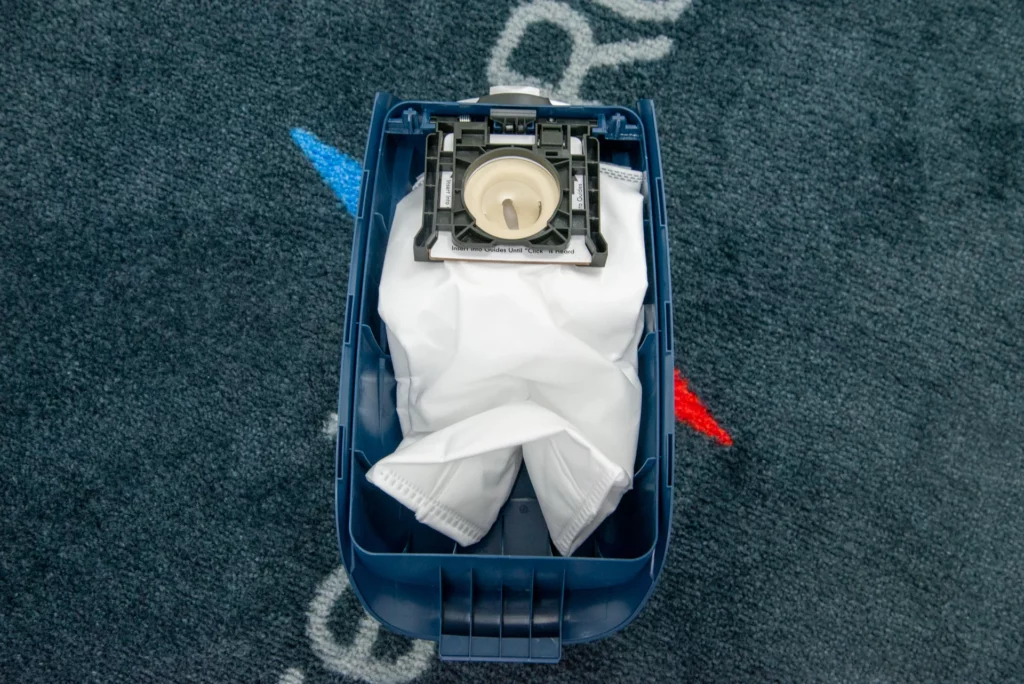
HEPA bags are an essential component of a vacuum cleaner, ensuring that the air released back into your home is clean and free from dust and allergens. These high-efficiency particulate air (HEPA) filters are designed to trap particles as small as 0.3 microns, making them a must-have for anyone concerned about air quality in their home. If you’re in the market for HEPA bags, here’s what you need to know to make an informed decision.
When shopping for HEPA vacuum bags , it’s important to consider the following factors:
- Compatibility: Make sure the bags are compatible with your vacuum cleaner model.
- Filtration Efficiency: Look for bags with a high filtration efficiency to ensure the air in your home is as clean as possible.
- Durability: Choose bags that are durable and long-lasting, so you don’t have to replace them frequently.
- Price: While price is a consideration, investing in high-quality is crucial for maintaining good air quality in your home.
Some bagged vacuums use HEPA filtration bags in conjunction with a HEPA filter. This double HEPA system offers a few bonuses:
- Added filtration – HEPA bags provide an extra layer of particle trapping before air reaches the filter.
- Cleaner bag changes – HEPA bags seal debris inside so dust isn’t released when disposing.
- Maintain suction – Limiting dust buildup in the bag helps maintain airflow as the bag fills.
- Reduce leaks – Tightly constructed bags prevent suction leaks around the edges.
However, HEPA bags are more expensive than regular vacuum bags. Make sure to buy bags specifically labeled HEPA; don’t assume regular bags provide the same filtration.
In addition to these factors, it’s also important to consider the reputation of the brand. Companies like Hoover, Miele, and Kenmore are well-known for their high-quality and are worth considering when making a purchase. By choosing a reputable brand, you can feel confident that you’re getting a product that will effectively filter out dust and allergens, leading to cleaner air in your home.
HEPA benefits for pet owners
Pets are a beloved part of the family, but they can also bring dander, fur, and other allergens into the home. By using HEPA filters, pet owners can improve the air quality in their homes and reduce allergens that can trigger asthma and allergies. These filters work by trapping tiny particles that other filters would simply recirculate back into the air.
One benefit of HEPA filters for pet owners is the reduction in pet-related allergens. These filters can capture particles as small as 0.3 microns, including pet dander and fur, making the air cleaner and safer for both humans and pets.
Additionally, HEPA filters can help eliminate pet odors, leaving the home smelling fresh and clean. Investing in a high-quality HEPA filter can provide peace of mind for pet owners, knowing that they are providing a healthier environment for themselves and their furry friends.
Extra tools like a motorized pet brush roll, extension hose, and crevice tool make it easy to remove pet hair from a variety of surfaces. So you and Fido can breathe a little easier.
| HEPA Filter Benefits | Reason |
|---|---|
| Captures pet dander and fur | Improves air quality |
| Reduces pet-related allergens | Provides a healthier environment |
| Eliminates pet odors | Leaves the home smelling fresh |
Bagless HEPA effectiveness
When it comes to vacuum cleaners, the effectiveness of bagless HEPA filters is a topic of great importance for those looking to improve the air quality in their homes. HEPA filters are a type of mechanical air filter that works by forcing air through a fine mesh to trap harmful particles such as pollen, pet dander, and dust mites. Bagless HEPA filters have the added convenience of not requiring disposable bags, making them an eco-friendly option for those looking to reduce waste.
Some benefits of bagless HEPA models:
- No ongoing costs for bags
- Increased airflow and suction power
- Easy to see when the container needs emptied
- One-touch dust cup disposal
The key is that the vacuum still utilizes a high-quality HEPA filter in conjunction with the dust cup. Multi-level filtration catches dust and allergens so they don’t get blown back out.
Just be diligent about emptying the dust cup before it gets overly full. This protects the HEPA filter from premature clogging.
Bagless HEPA filters are easy to maintain and clean, making them a convenient choice for busy households.
Stick Vacuums with HEPA
Stick vacuums with HEPA filters are a game-changer when it comes to maintaining a clean and healthy home environment. Are these effective or just a gimmick?
Once only found in full-size vacuums, HEPA filters are now being incorporated into ultra-portable stick vacuums. But are they as effective as a larger canister or upright?
It depends. Smaller stick vacuums face limitations on filter size and airflow. However, high-end stick vacs utilize clever designs and multi-level filtration to pack robust HEPA performance into a compact unit.
These compact and versatile vacuum cleaners are designed to capture 99.97% of airborne particles, making them ideal for allergy sufferers and pet owners. With their lightweight and cordless design, Stick vacuums with HEPA filters offer convenient and efficient cleaning power without compromising on air quality.
Advantages of stick vacuums with true HEPA filters:
- Extremely lightweight and maneuverable
- Cordless convenience for quick cleanups
- Equipped with effective dusting and crevice tools
The ultra-portability makes them ideal for quick cleanups. For whole-home deep cleaning though, a more powerful HEPA upright or canister vacuum is still a better choice.
Central Vacuum HEPA Pros/Cons
Are you considering investing in a central vacuum system with HEPA filters?
Let’s take a look at the pros and cons to help you make an informed decision.
Pros:
- Whole-home filtration
- No loss of suction as the canister fills
- Filters out dust as it’s carried through the piping
- Usually very large filtration surface area
- Improved indoor air quality: HEPA filters are highly effective at capturing small particles, including allergens, dust, and pet dander, which can significantly improve the air quality in your home.
- Allergy relief: For those who suffer from allergies, a central vacuum system with HEPA filters can provide much-needed relief by removing allergens from the air and reducing symptoms.
Cons:
- Motor isn’t as close to the filter intake
- Short hose lengths reduce suction power
- Cost: Central vacuum systems with HEPA filters can be more costly upfront compared to traditional vacuum cleaners. Installation and ductwork can be quite expensive. However, many users find that the long-term benefits outweigh the initial investment.
- Maintenance: HEPA filters require regular maintenance and replacement to continue functioning effectively, which can add to the overall cost of owning a central vacuum system.
In conclusion, a central vacuum system with HEPA filters can be a valuable investment for those looking to improve indoor air quality and reduce allergy symptoms.
However, it’s important to weigh the initial cost and ongoing maintenance against the long-term benefits.
If you prioritize clean air and allergy relief, the pros of a central vacuum system with HEPA filters may outweigh the cons for you.
HEPA in Air Purifiers
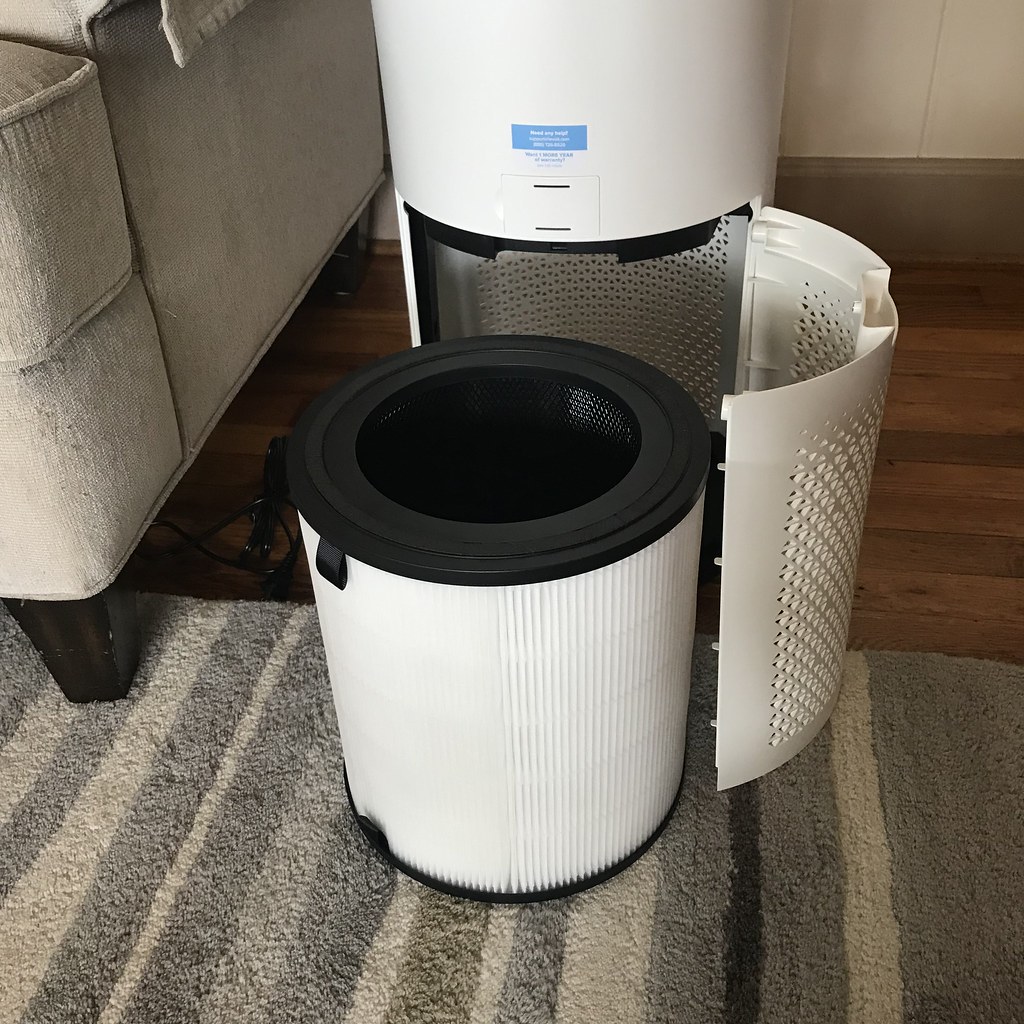
When it comes to choosing an air purifier, the inclusion of HEPA filters is a crucial factor to consider. HEPA, which stands for High Efficiency Particulate Air, is a type of mechanical air filter that is able to trap a large percentage of small particles that other filters might miss.
These filters are known for their ability to capture allergens, dust, pet dander, and other particles, making them essential for those with allergies or respiratory issues.
The use of HEPA filters in air purifiers ensures that the air in your home is cleaner, fresher, and healthier to breathe. This is especially important for individuals who suffer from asthma, allergies, or other respiratory conditions.
HEPA filters are also highly effective at removing harmful particles such as smoke, mold spores, and bacteria from the air, making them a valuable addition to any household.
When choosing an air purifier, look for models that include true HEPA filters to ensure the best air quality for you and your family.
Some top recommendations include the Honeywell HPA300, Coway AP-1512HH, and the Blueair Blue Pure 211+. Each of these models offers superior air filtration and is backed by reputable companies known for their commitment to clean air technology.
| Model | Recommended For |
| Honeywell HPA300 | Larger rooms and whole-house air purification |
| Coway AP-1512HH | Smaller rooms and portability |
| Blueair Blue Pure 211+ | Allergy sufferers and pet owners |
Other Uses of HEPA Filters
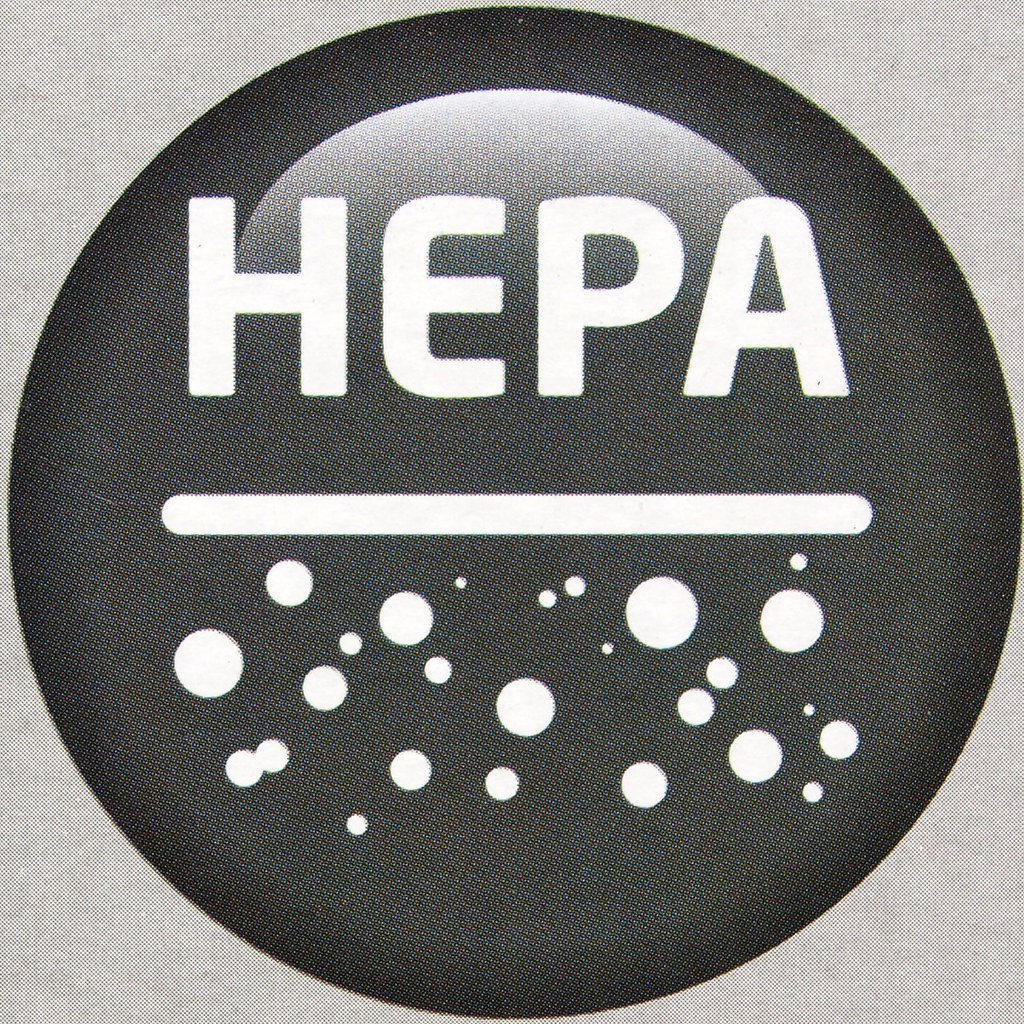
HEPA filters are commonly used in air purifiers to remove 99.97% of particles from the air, but did you know they have other uses too? One fascinating use for HEPA filters is in vacuum cleaners. HEPA filters are used in vacuum cleaners to trap small particles that would otherwise be re-released into the air. This makes vacuuming with a HEPA filter much more effective at removing allergens and pollutants from your home.
Another interesting use for HEPA filters is in medical settings. HEPA filters are used in hospitals and other healthcare facilities to help prevent the spread of airborne diseases. These filters are able to trap very small particles, including bacteria and viruses, making them an essential tool in infection control. In fact, some operating rooms and isolation units are equipped with HEPA filters to maintain a sterile environment.
Along with vacuums and air purifiers, HEPA filters are also commonly used:
- During painting projects to filter paint particles and fumes
- In HVAC systems to filter outdoor air entering a home
- At construction sites to reduce dust in enclosed areas
- During wildfires to create clean air shelters free of smoke
- In hospitals, laboratories, and “clean” rooms that require strict contamination control
So while we mostly associate them with vacuums, HEPA filters actually have many applications where filtration of fine particles is critical.
Questions & Answers For Importance of HEPA Filters in Vacuum Cleaners
Q: How do HEPA filters in vacuum cleaners improve indoor air quality?
A: HEPA filters trap and remove 99.97% of particles as small as 0.3 microns, including dust, pollen, pet dander, and other allergens, improving air quality in your home.
Q: What are the benefits of using a vacuum cleaner with a HEPA filter?
A: Using a vacuum cleaner with a HEPA filter can reduce allergy symptoms, asthma triggers, and airborne pollutants, creating a healthier environment for you and your family.
Q: How do HEPA filters in vacuum cleaners compare to standard filters?
A: HEPA filters are more efficient than standard filters, as they can capture smaller particles that would otherwise be recirculated back into the air.
Q: Can HEPA filters in vacuum cleaners help with pet allergies?
A: Yes, HEPA filters are effective at trapping pet hair, dander, and other allergens, providing relief for those with pet allergies.
Q: Are vacuum cleaners with HEPA filters worth the extra cost?
A: Yes, investing in a vacuum cleaner with a HEPA filter is worth the cost, as it can significantly improve indoor air quality and provide health benefits for allergy sufferers.
Q: How often should HEPA filters in vacuum cleaners be replaced?
A: HEPA filters should be replaced every 6 to 12 months, or as recommended by the manufacturer, to maintain their effectiveness in trapping particles.
Q: What types of vacuum cleaners are equipped with HEPA filters?
A: Many upright, canister, and handheld vacuum cleaners are available with HEPA filters, providing a variety of options for consumers to choose from.
Q: Can vacuum cleaners with HEPA filters help reduce dust in the home?
A: Yes, using a vacuum cleaner with a HEPA filter can reduce the amount of dust in your home by effectively trapping and removing fine particles from carpets, floors, and upholstery.
Q: Do HEPA filters in vacuum cleaners help with odors and chemical fumes?
A: While HEPA filters are not specifically designed to remove odors and chemical fumes, they can help reduce airborne particles that may contribute to unpleasant smells and indoor air pollution.
Q: Are there any drawbacks to using HEPA filters in vacuum cleaners?
A: The only potential drawback of HEPA filters in vacuum cleaners is the cost of replacing the filters, but the health benefits and improved air quality they provide far outweigh this minor inconvenience.
The Conclusion
And there you have it – the importance of HEPA filters in vacuum cleaners. With these innovative filters, you can rest assured that your home will be free from harmful particles and allergens, making it a safer and cleaner environment for you and your family. So, next time you’re in the market for a new vacuum cleaner, be sure to look for one with a certified HEPA filter. Your lungs will thank you!
